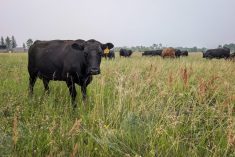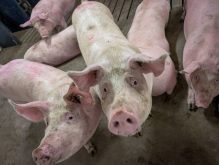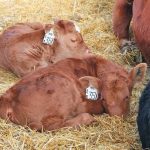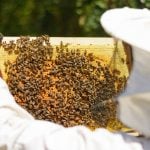The farm business registration (FBR) program, by which the National Farmers Union-Ontario (NFU-O) has now found itself shut out from collecting mandatory dues from Ontario farmers, is up for review.
As part of the review, Ontario’s farmers have until Sept. 13 to suggest changes, if any, to the FBR program. The process today requires farmers to have an FBR number to take part in certain provincial ag programs.
According to Agricorp, the province’s farm program delivery agency, the objectives of the FBR review are “to determine what changes, if any, are required” to the process — specifically, the accreditation process for farm organizations and the criteria for a farm organization to be eligible for accreditation.
Read Also

Egg Farmers of Canada, University of Guelph appoint new poultry welfare research chair
The Egg Farmers of Canada and the University of Guelph have a new research chair tasked with driving poultry welfare research.
The review will also ask what, if any, changes are required to ensure the registration and/or membership process is simple and efficient for farm businesses, accredited farm organizations and Agricorp, which administers the FBR program.
The FBR program now requires all farm businesses with gross farm income of $7,000 or more (Ontario now has about 45,000 such businesses) to file with the provincial ag ministry a completed farming business registration form and a fee, (now $195 plus HST), payable to an accredited farm organization.
Farmers can then ask for a refund of that fee, if they wish, to direct it to a different organization.
Today, the Ontario Federation of Agriculture (OFA) and Christian Farmers Federation of Ontario (CFFO) are the only two accredited organizations. Both, and the NFU-O, had accreditation in previous years, but lost it in May last year in an unexpected decision from the Agriculture, Food and Rural Affairs Appeal Tribunal
The tribunal, an arm’s-length body which oversees accreditation, found none of the three groups met the requirements under the provincial Farm Registration and Farm Organizations Funding Act (FRFOFA).
The province stepped in to rework the regulations on accreditation, which saw the OFA and CFFO regain their status. The tribunal again ruled against the NFU-O, finding it still did “not have standing to apply for accreditation,” nor did it “meet the requirements for accreditation.”
The NFU-O now must ask its supporters to request refunds of their FBR fees from the OFA or CFFO, then redirect those fees to the NFU-O.
A discussion document, issued in late July when the latest review of the FRFOFA was announced, asks farmers to consider whether accreditation decisions should still be made by an entity such as the tribunal, or by the provincial ag ministry. Or, the discussion document asks, should the ministry or ag minister instead have an expanded role to review the tribunal’s decisions?
Farm organizations such as the OFA or CFFO also now must eat the administrative costs of handling refund requests from farmers seeking refunds of their FBR fees, and those organizations have since asked that those costs — estimated at about $20 per application — be made non-refundable. The FBR discussion document also asks farmers to consider whether that request should go ahead.
The ag ministry, in the discussion document, said it’s also considering setting a specific timeline in which accredited farm groups must issue refunds to farm businesses that request them.
Furthermore, the discussion document notes, the $7,000 gross income threshold — beyond which a farm must have a farm registration number — hasn’t been adjusted for inflation since 1993, when the FRFOFA was enacted. The $7,000 minimum in 1993 is thus worth about $10,800 in 2013 dollars. The discussion document asks if the gross income threshold should be “adjusted.”
Agricorp, for its part, said last month it will continue to work with the provincial ag ministry on any FBR process changes that result from this review and will make sure farmers are informed.
The NFU-O, for one, said on its website last month it plans to make a submission to the review and encouraged farmers to do the same. — AGCanada.com Network














